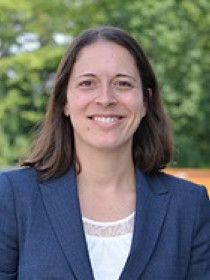Connect with Katherine
About Katherine
Michelmore’s current research interests focus on the interaction of public policies and family structure, family demography, access to higher education, and labor demographics. Previously, she served as a Postdoctoral Fellow at University of Michigan, and before that worked as a research assistant at the Urban Institute specializing in forecasting changing demographic patterns in the U.S. Michelmore holds a PhD in policy analysis and management from Cornell University and an undergraduate degree from Wesleyan University.
Contributions
Does It Matter for Children If Their Parents are Married?
Key Findings Brief,
Publications
"The Earned Income Tax Credit and Union Formation: The Impact of Spouse Earnings," Social Science Research Network, forthcoming.
Examines the link between the marriage penalty in the EITC and marriage and cohabitation decisions among low-income women. Argues that women with larger marriage penalties are more likely to cohabit and less likely to marry their partners than women who experience no marriage penalties in the tax code.
"Trends in the Relative Stability of Marital and Cohabiting Unions Following a First Birth" (with ). Demography (2015).
Compares family stability following a first birth across different types of families forms. Argues that cohabiting couples who marry before or after a birth are no more likely to separate than couples who were always married after controlling for demographic differences and that only cohabiting couples who never marry were substantially less stable.
"Fertility Patterns of College Graduates by Field of Study, U.S. Women Born 1960-79" (with ). Population Studies 68, no. 3 (2014): 359-374.
Shows the difference in the share of women having children across college majors. Differences across majors are nearly as wide as differences across education levels (e.g. between college graduates and high school dropouts).
"What’s so Special about STEM? A Comparison of Women’s Retention in STEM and Professional Occupations" (with ). Social Forces 92, no. 2 (2013): 723-756.
Compares the career trajectories of women working in science, technology, engineering, and math (STEM) fields to women working in other professional occupations. Argues that while both groups of women tend to exit the labor force at similar rates, women in STEM are far more likely to leave their occupations for new jobs than women in other professional occupations.
